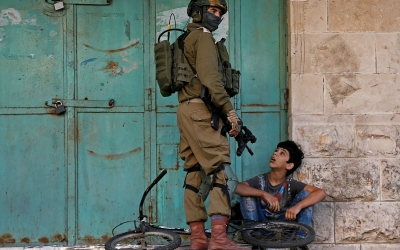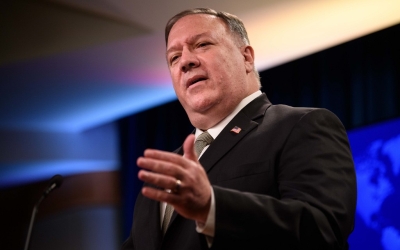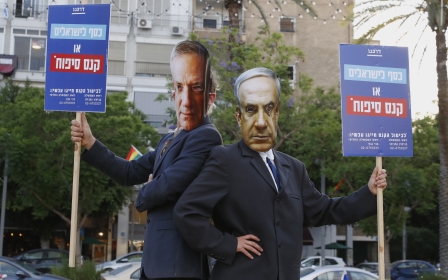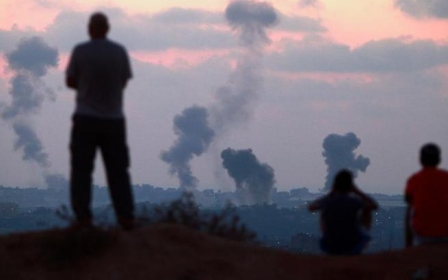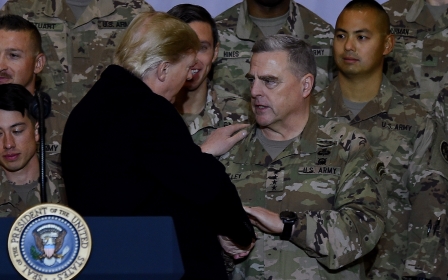ICC rules it has jurisdiction to probe alleged war crimes by Israel and Hamas
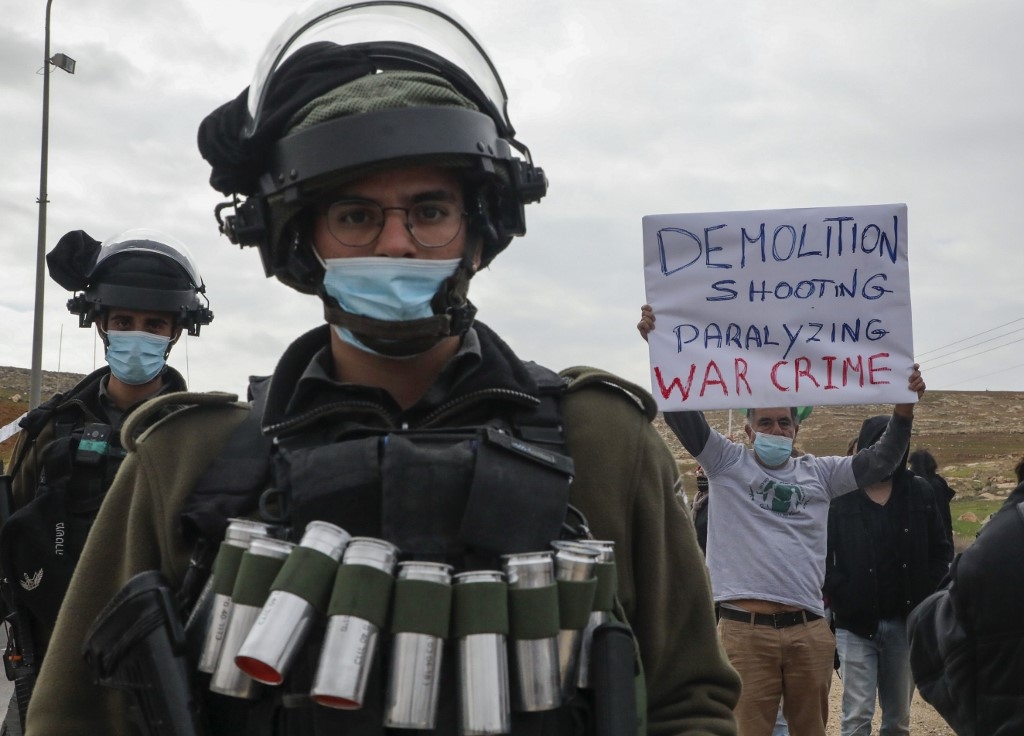
Israel's Prime Minister Benjamin Netanyahu on Saturday angrily rejected an International Criminal Court's ruling that paves the way for a war crimes probe into the Israeli-occupied Palestinian territories, condemning it as "pure anti-Semitism".
A pre-trial chamber at The Hague-based court was tasked in January 202o with ruling on the scope of the ICC's jurisdiction in regards to Israel and Palestine, given that the state of Israel, unlike the Palestinian Authority, is not a member of the ICC.
On Friday, the ICC ruled that it has jurisdiction over the situation in the occupied Palestinian territories
"Palestine has... agreed to subject itself to the terms of the ICC Rome Statute and has the right to be treated as any other State Party for the matters related to the implementation of the Statute," the ICC said in a statement on Friday.
Palestinian Prime Minister Muhammad Shtayyeh welcomed the decision, calling the ICC ruling "a victory for justice and humanity". He also called on the court to "speed up its judicial procedures" regarding Palestinian cases.
New MEE newsletter: Jerusalem Dispatch
Sign up to get the latest insights and analysis on Israel-Palestine, alongside Turkey Unpacked and other MEE newsletters
But Prime Minister Netanyahu lambasted the ruling. "As prime minister of Israel, I can assure you this: we will fight this perversion of justice with all our might," Netanyahu said in a statement on Saturday.
"This is pure anti-Semitism."
The scope of the ICC's jurisdiction would include Israel's settlements in the occupied West Bank, widely considered illegal under international law.
The Geneva Conventions state that an occupying power cannot legally transfer part of its population into the territory it is occupying, and the International Court of Justice in 2004 issued an advisory opinion saying that Israel had breached its obligations under international law by establishing settlements.
Israel has firmly rejected any ICC jurisdiction over its citizens.
The move has also been contested by the US, Israel's closest ally, which said on Friday that it had "serious concerns about the ICC's attempts to exercise its jurisdiction over Israeli personnel".
'A reasonable basis' to investigate
The court took up the question of territorial jurisdiction after its chief prosecutor, Fatou Bensouda, announced grounds to open a full investigation into alleged war crimes committed within the occupied territories.
At the time, Bensouda stressed that, while she had determined "a reasonable basis to proceed with an investigation into the situation in Palestine," she first needed the court to rule on jurisdiction. Her determination came after five years of preliminary probes and examination of evidence.
Noting that border issues and questions of statehood were not within the scope of the court's mandate, on Friday the ICC cleared Bensouda to proceed with a full investigation.
A full ICC probe may lead to charges against individuals, but states cannot be charged.
Bensouda is expected now to begin investigating Israeli and Hamas officials over alleged war crimes in the occupied territories, starting in 2014, when Israel's air bombardment of the Gaza Strip resulted in the deaths of 2,251 Palestinians, the majority of them civilians. During the same period, 74 Israelis, mostly soldiers, were also killed.
In 2015, a report by UN investigators concluded both Israel and Palestinian armed groups might have committed war crimes during the conflict.
The report by the UN Human Rights Council (UNHRC) said that, while both Israelis and Palestinians were "profoundly shaken" by the war, "the scale of the devastation was unprecedented" in Gaza.
It said 551 Palestinian children were among the dead, with thousands more among the 11,231 injured by Israeli actions.
Israelis who could come under the ICC's scrutiny include: Prime Minister Benjamin Netanyahu; former defence ministers Moshe Yaalon, Avigdor Lieberman and Naftali Bennett; former Israel Defence Forces chiefs of staff Benny Gantz and Gadi Eisenkot, and current chief of staff Aviv Kochavi; and the former and current heads of the Shin Bet domestic security service, Yoram Cohen and Nadav Argaman, respectively.
US sanctions ICC officials
A group of Palestinians from the occupied West Bank also submitted a complaint to the ICC in June, requesting an investigation into senior Israeli and US officials who authorised then-US president Donald Trump's "Peace to Prosperity" plan.
At the time, the group's representative said there was "credible evidence" that top US officials, including Trump, were "complicit in acts that may amount to war crimes relating to the transfer of populations into occupied territory and the annexation of the sovereign territory of the State of Palestine".
Israel and the US are two of the few countries that rejected the founding of the ICC, while 123 countries have agreed to its mandate.
In September, the United States - under Trump - levied sanctions against Bensouda and Phakiso Mochochoko, another senior prosecution official, over investigations in Afghanistan and Palestine.
At the time, Trump stressed the court had no "jurisdiction over personnel of the United States and certain of its allies," referring to Israel.
The Biden administration has said it plans to review the sanctions against the ICC officials.
"Much as we disagree with the ICC's actions relating to the Afghanistan and Israeli/Palestinian situations, the sanctions will be thoroughly reviewed as we determine our next steps," a State Department spokesman said in a statement during Biden's first week in office.
The spokesman added that the new administration supports reforms "to help the court better achieve its core mission of punishing and deterring atrocity crimes" and may cooperate with the ICC in "exceptional cases".
Following Friday's decision, State Department spokesman Ned Price said the US had "serious concerns" about the ICC's effort to assert jurisdiction over Israeli personnel.
"We do not believe the Palestinians qualify as a sovereign state, and therefore are not qualified to obtain membership as a state, or participate as a state in international organisations, entities, or conferences, including the ICC," Price said.
"The United States has always taken the position that the court's jurisdiction should be reserved for countries that consent to it, or that are referred by the UN Security Council."
Middle East Eye delivers independent and unrivalled coverage and analysis of the Middle East, North Africa and beyond. To learn more about republishing this content and the associated fees, please fill out this form. More about MEE can be found here.


